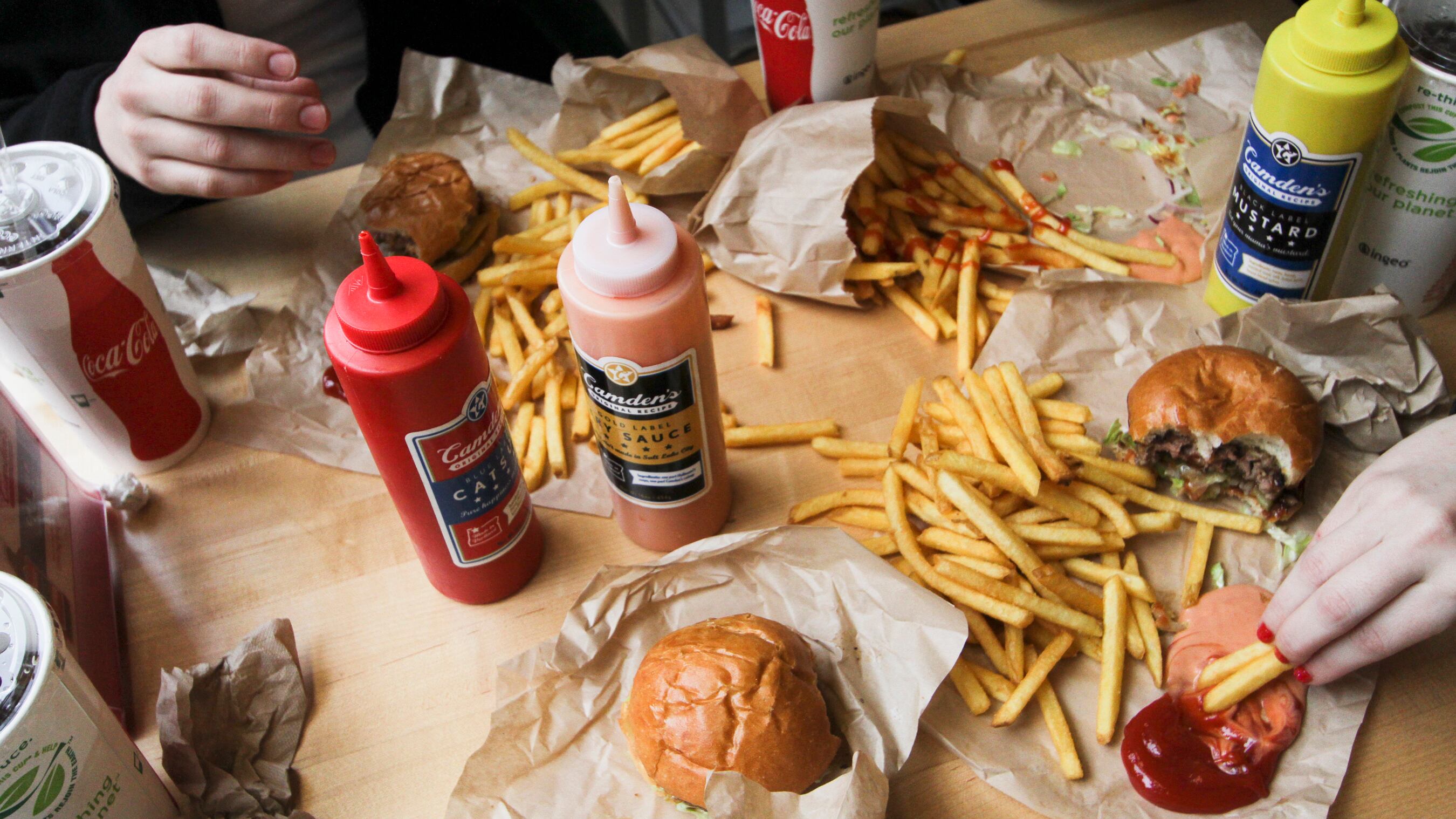Last year, employees at a Southeast Portland Burgerville voted to become the first fast-food union in the nation. Last week, workers at Little Big Burgers in Oregon voted against joining them.
Little Big Burger, which was founded by Portland chef Micah Camden, was sold four years ago to North Carolina-based Chanticleer Holdings. It has stores in Oregon, Washington, North Carolina and Texas.
Cam Crowell alleges he was fired from his job of two years at Little Big Burger for being a union advocate. He says managers told him he was fired and banned from stores for failing to refill napkin dispensers and sauce bottles during a closing shift. Union organizers say 10 employees were fired during the buildup to the election.
Little Big Burger says Crowell and others were intentionally "escalating" conflict with management to gain sympathetic press. "We flatly reject the notion that Little Big Burger or any of its managers engaged in 'union busting' or any type of interference in the recent election," says company spokesman Jason Assad.
We asked Crowell why the union lost. Because many of his answers are allegations against his former employer, we asked Assad to respond.
WW: Why did workers vote no in the election?
Cam Crowell: There were a lot of different factors. One was fear and confusion. When 9 percent of the workforce was fired, I think people were really scared to speak up and act collectively. People were also scared about having to pay dues and not getting benefits—very boilerplate anti-union stuff like, "There's no guarantee you're going to win anything."
Jason Assad responds: Without reference to any individual, our employees saw some of their co-workers commit the type of acts that would lead to discipline in any responsible company, including verbal and (in at least one case) physical assaults against managers, attempts to intimidate co-workers, purposely destroying inventory (while leaving notes with smiley faces and expletives), and purposely leaving our store unlocked overnight.
Could the younger workforce at Little Big Burger have been a factor?
Crowell: It is a pretty young workforce. There aren't a lot of people trying to get a job through retirement, like folks who work at Burgerville. But it was a tactic, I think, after the union went public, to try and hire more teenagers who were only going to be employed short term.
Assad: We have a great team made up of astute, observant people who care about the world around them. If our employees believed we were being retaliatory or unfair, or behaving illegally, we believe the outcome of this election would have been very different.
Does it make a difference that Burgerville is locally owned and Little Big Burger is not?
Crowell: Burgerville seems to care more about their brand identity, and being seen as liberal. So they were afraid, maybe, to go as far. This felt like a scorched-earth kind of practice on behalf of Chanticleer Holdings. Workers saw me as a person to reach out to about the union—and I was threatened with trespassing after allegedly not refilling napkins. Most people who get terminated from these jobs don't get kicked out permanently in the middle of an election.
Assad: [Union] followers purposely chose—repeatedly and tactically—to break simple workplace rules that nearly every one of our associates follow on a daily basis. We can only surmise this was done with the goal of "making good press" by charging Little Big Burger with breaking the law. We believe the recent election result shows that most of our employees saw right through these tactics.
What's next?
Crowell: Union elections aren't the be all end all. Rather, they're a tool to force the company to the bargaining table. And, unfortunately, that isn't happening right now. I think it still can down the road—whether that's through a challenge of the election or another election next year.
Assad: Our employees have spoken by voting no to the proposed union and yes to working together to make Little Big Burger the employer of choice for fast-casual workers in Portland.
Correction: An earlier version of this article incorrectly stated that Chanticleer Holdings owns Hooters. It owned an investment in Hooters, which it recently sold.
